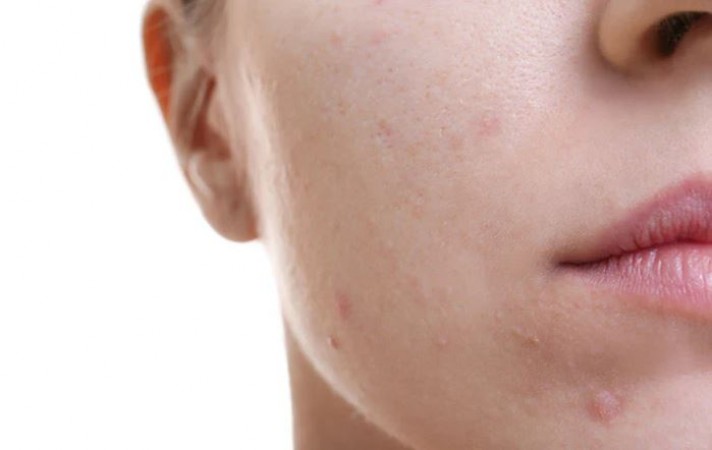
Acne during menstruation, often referred to as menstrual acne, is a common issue faced by many women due to hormonal changes. These fluctuations can lead to increased sebum production, clogged pores, and ultimately, pimples on the face. If you're experiencing this skin concern during your periods, here are detailed strategies to help you manage and prevent it effectively:
Understanding Menstrual Acne
Menstrual acne typically occurs a few days before menstruation begins and may continue through the menstrual cycle. It's primarily triggered by hormonal shifts, specifically fluctuations in estrogen and progesterone levels. These hormonal changes stimulate the sebaceous glands to produce more oil, which can combine with dead skin cells and bacteria to clog pores and cause breakouts.
Effective Tips to Manage and Prevent Menstrual Acne
Maintain a Consistent Skincare Routine:
Gentle Cleansing: Wash your face twice a day with a mild cleanser to remove excess oil, dirt, and impurities without stripping the skin of its natural moisture.
Oil-Free Moisturizer: Use an oil-free moisturizer suitable for your skin type to keep it hydrated without adding extra oil.
Spot Treat with Tea Tree Oil:
Tea tree oil has natural antibacterial properties that can help reduce inflammation and fight acne-causing bacteria. Apply a small amount directly to pimples using a cotton swab.
Cool Compresses:
Applying a cold compress or ice pack to the affected areas can help reduce inflammation, redness, and swelling associated with pimples. Wrap ice in a cloth and gently apply to your skin for a few minutes.
Avoid Touching Your Face:
Refrain from touching or picking at pimples, as this can introduce more bacteria and lead to further inflammation and potential scarring.
Healthy Diet and Hydration:
Maintain a balanced diet rich in fruits, vegetables, and lean proteins, and stay hydrated by drinking plenty of water. A well-balanced diet and adequate hydration can support overall skin health.
Manage Stress:
Stress can exacerbate hormonal fluctuations and contribute to acne outbreaks. Practice stress management techniques such as yoga, meditation, deep breathing exercises, or hobbies that relax and rejuvenate you.
Consider Hormonal Birth Control:
For some women, hormonal birth control methods can help regulate hormone levels and reduce acne associated with menstruation. Consult with your healthcare provider to discuss if this option is suitable for you.
Consult a Dermatologist:
If acne persists or becomes severe, consider consulting a dermatologist. They can provide personalized advice, prescribe topical or oral medications, or suggest treatments such as chemical peels or laser therapy to manage acne effectively.
Managing menstrual acne requires a combination of consistent skincare habits, lifestyle adjustments, and sometimes medical intervention. By understanding the causes and implementing these strategies, you can significantly reduce the occurrence and severity of acne during your menstrual cycle, helping you maintain clearer and healthier skin overall.
Can wearing a tight bra cause breast cancer? Know the facts
Helpful Tips for Managing Bedwetting in Children Without Scolding
Cancer Drugs: Cancer medicines are available cheap in this state, know the rates